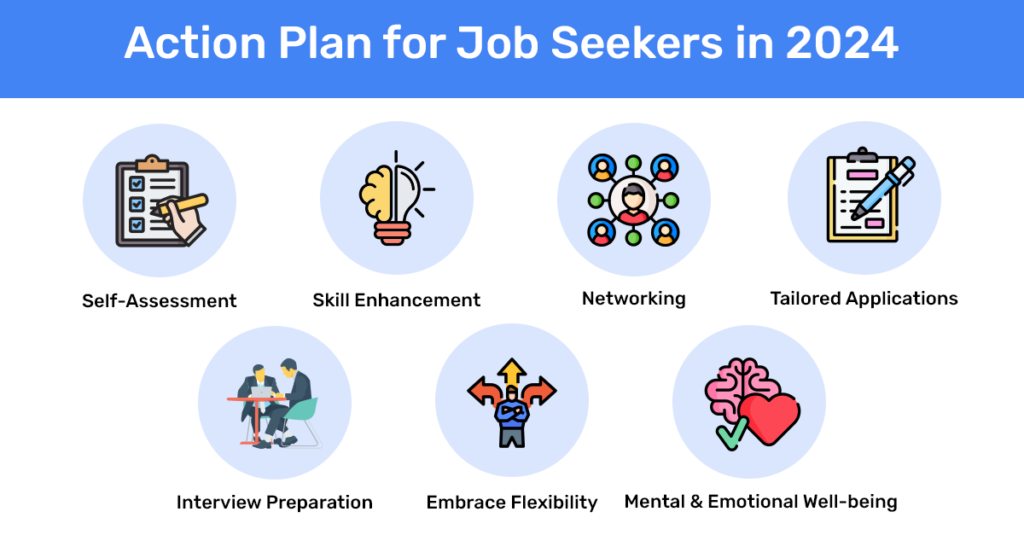Job hunting in Ireland? Whether you’re eyeing a fresh start or looking to make a career leap, it’s important to approach the process thoughtfully. Even with plenty of new roles emerging, landing the perfect job requires more than just sending out resumes. So, what’s the best way to stand out in the competitive Irish job market?
Here are seven creative, practical smart tips to land job in Ireland that can help you!
1. Master the Art of Job Searching
First things first—where do you even start your search? The bulk of job listings these days are online, so familiarizing yourself with the top job boards is crucial. Here’s a quick list of popular job sites in Ireland to get you started:
For those aiming to break into specialized fields like IT or cybersecurity, working with a recruitment agency can offer a strategic advantage. Recruiters often have access to jobs that aren’t publicly listed and have direct lines to hiring managers. This inside track can give you an edge and provide insights into company culture and work environments that online ads don’t offer.
If you live in a smaller town or rural area, consider looking beyond the big job boards. Jobs in local papers, on the radio, or with community recruitment offices may fly under the radar but offer great opportunities. SMEs and micro-organizations often don’t post on major platforms like LinkedIn.
Pro Tip: If you’re on the west coast, explore resources like the Western Development Commission and WesternJobs.ie. They cater specifically to people living outside major cities, helping you tap into regional job opportunities.
2. Target Jobs You Actually Want
While it might be tempting to apply for every job that looks halfway decent, it’s far better to be selective. One of the key tips to finding a job in Ireland is focusing your efforts on roles that align with your skills and career goals. Applying for jobs you’re genuinely interested in not only saves time but also keeps your morale high throughout the process.
By being intentional about where you apply, you increase your chances of landing an interview. Start by creating a shortlist of roles where you believe your experience and skills will truly shine. Then, take the time to research each company and role.
Pro Tip: Answer this crucial question before applying: Will my skills solve the hiring manager’s problem? If the answer is yes, your application is far more likely to get noticed.
3. Leverage Your Network
In Ireland, networking is still a game-changer when it comes to job hunting. Our small, well-connected population means that someone you know probably knows someone where you want to work. And a referral can make all the difference.
In fact, referred candidates are statistically five times more likely to be hired than those who apply through job boards. Reach out to your network, whether it’s friends, former colleagues, or acquaintances, and ask for introductions to people in your target companies.
For newcomers or anyone expanding their reach, there are plenty of other ways to network:
- Industry Meetup Groups
- Professional Associations
- Slack Communities
- LinkedIn Groups
Many of these networking spaces have adapted to online formats, making them even more accessible.
4. Get Creative with Your Personal Pitch (One of the best Tips to Land Job in Ireland)
Your CV is essential, but it shouldn’t be your only tool. To truly stand out, think outside the box when showcasing your skills. Build an online portfolio, upload presentations, or create short videos to highlight your work. By going beyond the standard resume, you’ll not only demonstrate your expertise but also show your enthusiasm, creativity, and initiative.
These extras can be particularly helpful in industries where soft skills are critical, like marketing or project management. They allow you to tell your story in a way that a CV alone simply can’t.

5. Let Recruiters Come to You
You don’t always have to be the one chasing down job listings—sometimes, you can attract opportunities directly. The Irish job market is booming, especially in industries like cybersecurity, fintech, and healthcare. So why not position yourself to be found by recruiters?
A well-optimized LinkedIn profile with the right keywords can get you noticed by hiring managers before you’ve even applied. Be sure to fill out your profile completely and include links to any portfolios or past projects. Don’t be shy about asking for recommendations from colleagues or managers to enhance your credibility.
Pro Tip: Highlight non-work-related experiences, such as volunteer work or community involvement. Employers value soft skills like teamwork, leadership, and problem-solving, which you can gain in various settings.
6. Upskill with Purpose
The job market in Ireland is evolving fast, especially in tech-driven industries. To stay ahead, it’s essential to upskill regularly. Fortunately, there are numerous ways to do this, from formal courses to short, online certifications.
Strategic upskilling not only increases your chances of getting hired but also helps you stay relevant in your field. Whether you’re aiming to break into a new industry or climb the ladder in your current one, learning new skills is key.
Pro Tip: Check out specialized courses through programs like UCD Professional Academy that can help boost your credentials and give you an edge in the Irish job market.
7. Nail the Interview Process
Applying for jobs is just the first hurdle. The real challenge often lies in acing the interview. Understanding the types of interviews typical for your industry will give you an edge. Whether it’s a technical interview, a behavioral interview, or a case study, knowing what to expect helps you prepare more effectively.
The interview process is ultimately about solving the hiring manager’s problem. So, focus on showcasing how your skills, experience, and approach will be the solution they need.
Pro Tip: With many interviews still happening via Zoom, practice virtual interview etiquette. Ensuring that you’re comfortable with the technology, have a quiet space, and can engage confidently on video can make all the difference.








